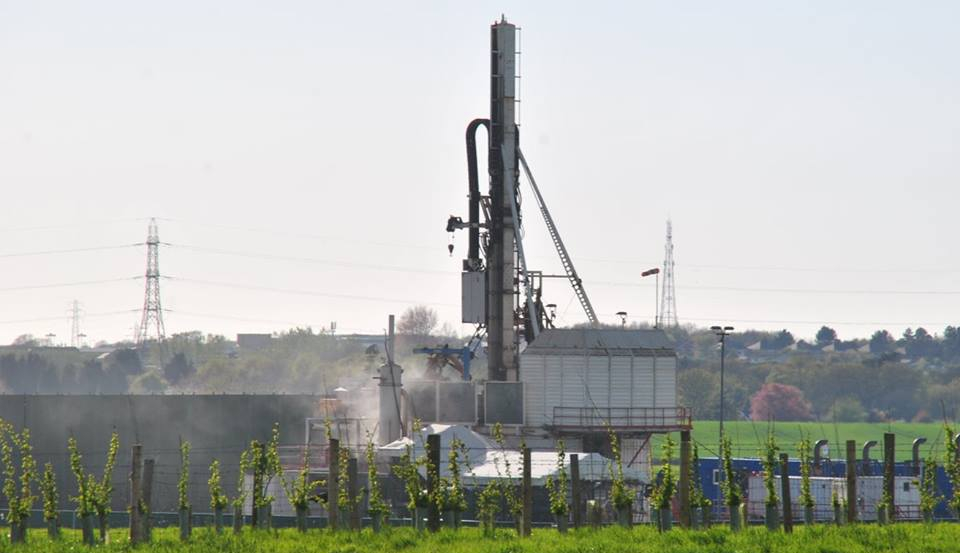
Cuadrilla’s Preston New Road fracking site near Blackpool, 1 May 2018. Photo: Ros Wills
Politicians are calling for evidence on the cumulative effects of shale gas exploration and extraction.
The issue will be the first session of the new All Party Parliamentary Group on the Impact of Shale Gas.
The group is inviting witnesses to provide written and oral submissions.
During the session, the group said it would seek to understand the potential implications of commercial shale development on areas in Petroleum Exploration and Development Licences.
A press release issued this afternoon said the APPG particularly wanted to explore issues including:
- The level and volume of drilling likely to be required to support commercial extraction of shale gas through hydraulic fracturing in the UK
- What would full-scale commercial fracking look like in the UK, area-by-area basis?
- The potential impact on individual communities near full-scale commercial development
- Whether the current planning policy and practice can realistically support the level of extraction needed for full-scale commercial fracking in the UK to provide energy self-sufficiency?
- Whether the planning system is effectively dealing with cumulative impacts at the current time and whether the apparent separation of exploration and development in the NPPF remains appropriate
The APPG on the Impact of Shale Gas was set up earlier this year to “explore and debate legislation, policy, regulation and data on shale gas exploration and extraction in the UK and abroad”.
It is chaired by Lee Rowley, MP for North East Derbyshire, whose constituency includes Marsh Lane where Ineos wants to explore for shale gas. The vice-chairs include Sir Kevin Barron, who represents Rother Valley, which includes another Ineos site at Harthill.
People who wish to submit evidence or take part in the session should contact Lee Rowley MP by Friday 8 June 2018. The session will be held at Westminster on Tuesday 19 June 2018 from 1pm-3pm.
Categories: Politics

Interesting, i said before that Lee Rowley would be tied down and gagged by a limited remit of the parliamentary groups scope of reference?
And so it has become evident, these parameters are clearly aimed at approval of fracking and dont question the validity of fracking in its UK context at all.
The press release issued said the APPG particularly wanted to explore issues including:
The level and volume of drilling likely to be required to support commercial extraction of shale gas through hydraulic fracturing in the UK
What would full-scale commercial fracking look like in the UK, area-by-area basis?
The potential impact on individual communities near full-scale commercial development
Whether the current planning policy and practice can realistically support the level of extraction needed for full-scale commercial fracking in the UK to provide energy self-sufficiency?
Whether the planning system is effectively dealing with cumulative impacts at the current time and whether the apparent separation of exploration and development in the NPPF remains appropriate
Only point three anywhere near addresses the essential question:
The potential impact on individual communities near full-scale commercial development
All the other questions are little more than rubber stamp wording, and the real aim appears to be how to do away with local planning and representation and how to railroad it through central government and bypass any protest and opposition.
Clearly Lee Rowley has been “sidetracked” into narrow limitations which will no doubt carry on without ever being able to address that one simple and vital question.
Do we want or can we afford heavily industrialised fracking of our countryside for mere private profit?
A good starting point, but as was recently stated by the Minister, there has to be some fracking first to identify projected outputs and scale.
As always with these issues, a bit of chicken and egg, but if the issue is discussed then it should encourage the viewpoint that testing needs accelerating.